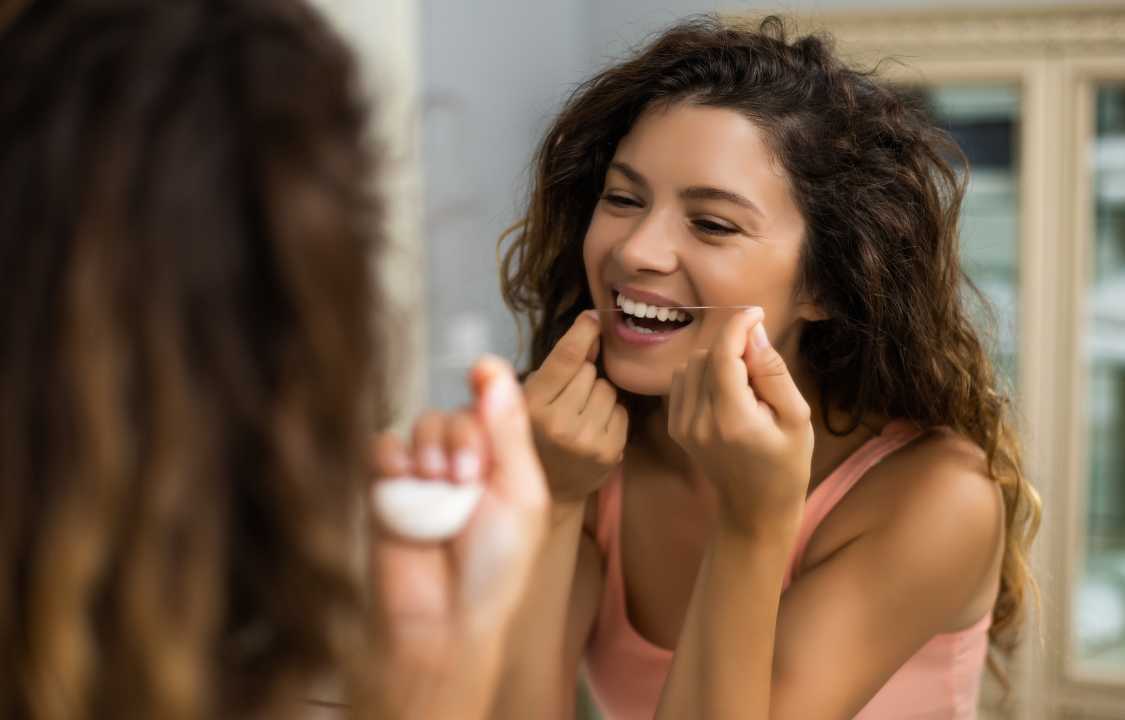Health Care
The Ultimate Guide to Dental Hygiene
Proper dental hygiene is not just about maintaining a beautiful smile; it’s an essential component of overall health. A healthy mouth not only ensures strong teeth and gums but also aids in digestion and prevents dental issues that can impact not only your oral health but also your overall well-being. In this comprehensive guide, you’ll discover expert dental hygiene tips and techniques for optimal dental and oral health care, and you’ll come to appreciate how taking good care of your oral health can contribute to a confident and healthy life.
Understanding Dental Hygiene
Dental hygiene is a crucial aspect of overall oral health. It encompasses practices that help maintain a clean, disease-free oral cavity and address problems such as bad breath. This includes daily oral hygiene routines like brushing, flossing, and more.
Dental hygiene specifically focuses on the teeth, ensuring they remain clean, strong, well-aligned, and free of common dental issues. Some of these dental problems include crowded teeth, crooked teeth, tooth decay (cavities or dental caries), gum diseases (gingivitis and periodontitis), and issues related to teeth odor and bad breath.
7 Best Dental Care Practices And Tips
Maintaining excellent dental hygiene is the foundation of preventing dental diseases and ensuring fresh breath. Here are some key dental care practices and tips to help you keep your oral health in check:
1. Regular Teeth Brushing
The cornerstone of good dental hygiene is regular and thorough teeth brushing. Here are some tips for effective teeth brushing:
- Brush at least twice a day, ideally after meals, to remove food particles and plaque.
- Choose a soft-bristle toothbrush that is gentle on your gums and teeth.
- Brush for at least two minutes, making sure to clean all surfaces of your teeth – front, back, up, down, and chewing surfaces.
- Maintain a 45-degree angle between your toothbrush and your gums while using gentle circular motions for optimal cleaning.
2. Cleaning Your Tongue
Your dental hygiene routine should include cleaning your tongue. This not only helps freshen your breath but also removes bacterial buildup. Here’s how to clean your tongue effectively:
- Use a small amount of toothpaste on your toothbrush.
- Gently brush your tongue using circular motions, moving as far back as possible without triggering a gag reflex.
- Consider using specialized tongue scraper products designed to remove food particles and bacteria.
- Rinse your mouth with mouthwash after brushing your teeth and tongue for thorough cleaning.
3. Flossing
Don’t neglect the importance of dental flossing. Dental floss helps remove food particles and plaque that accumulate between your teeth. Follow these tips for effective flossing:
- Floss at least once a day, choosing a floss type that feels comfortable for you.
- Gently slide the dental floss between each tooth, being cautious to avoid gum injury.
- Curve the floss around each tooth in a C-shape and gently glide it in an up-and-down motion.
4. Teeth Braces For Crowded Teeth
If you have crowded teeth, consider orthodontic treatment with braces. Metal, clear, or ceramic braces can help correct the alignment of your teeth and give you a beautiful smile. Here’s what you should know about dental braces:
- You can choose from traditional braces with wires, brackets, and bands, or modern clear aligners.
- Braces work by applying constant pressure to move overlapping teeth into their proper positions.
- Regular dental visits are essential for adjustments and monitoring your progress.
5. Use Mouthwash
Quality mouthwash can be a valuable addition to your oral hygiene routine. Here are some best practices for using mouthwash:
- Choose a mouthwash with an ADA Seal of Acceptance to ensure it’s safe and effective.
- Select the right type of mouthwash with antimicrobial properties or fluoride, depending on your specific needs.
- Rinse your mouth with mouthwash after brushing and flossing, swishing it for about 30 seconds or a minute before spitting it out.
6. Avoid Bad Habits That Harm Your Teeth
Certain habits can harm your teeth and overall oral health. Avoid the following behaviors:
- Smoking and using tobacco products can lead to tooth decay, gum disease, and oral cancer.
- Chewing ice can cause physical damage to your teeth, such as cracks or chips.
- Nail-biting can damage your teeth and lead to oral health issues.
- Consuming too many sugary and acidic foods, such as sodas and candies, can contribute to tooth decay and bacterial infections.
7. Regular Dental Check-Ups
In addition to your daily oral hygiene practices, regular dental check-ups are essential. These visits provide preventative care that can help identify minor dental issues before they become major problems.
Conclusion
Comprehensive dental hygiene is vital for a healthy smile, strong teeth, and overall well-being. Proper dental hygiene is more than just brushing your teeth; it includes flossing, tongue cleaning, mouthwash, and regular dental check-ups. By adopting these practices, you can maintain a radiant smile, fresh breath, and overall oral health without breaking the bank. Prioritizing your oral health will lead to a confident and healthy life.

